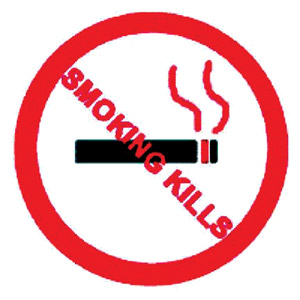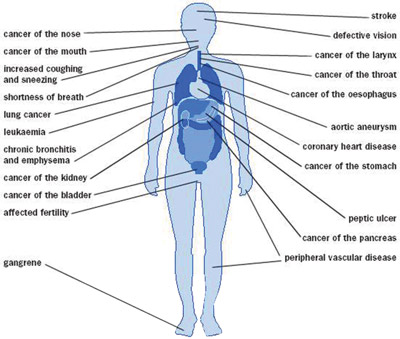|
International Women's Day:
Tobacco, alcohol and Women
Prof Carlo Fonseka
Tobacco and alcohol harm men, women and children physically,
mentally, socially and economically. In Sri Lanka the bulk of the social
harm traceable to tobacco and alcohol is inflicted on and borne by
women. On International Women's Day, it is salutary to focus attention
on the load of silent suffering women have to endure because of
addictive substance abuse by men. Much can be done and should be done to
reduce this avoidable suffering.
 Currently
females comprise 52 percent of Sri Lanka's population. With an average
lifespan of 77 years women outlive men by about four years. This
blessing is surely largely attributable to their healthier life style. Currently
females comprise 52 percent of Sri Lanka's population. With an average
lifespan of 77 years women outlive men by about four years. This
blessing is surely largely attributable to their healthier life style.
According to a recent well-conducted investigation carried out by a
team of doctors from the Faculty of Medicine, University of Colombo, the
prevalence of drinking and smoking is significantly higher in the urban
areas than in the rural areas of the country. The investigators found
that about 33 percent of the urban adult males are current drinkers
whereas only 21 percent of the rural males are. As to smoking, about 30
percent of the urban males are smokers compared to about 24 percent of
their rural counterparts.
Motherhood
The good news on International Women's Day is that the consumption of
tobacco and alcohol by the women of Sri Lanka is remarkably low. It is
so low in fact that those who believe in the Buddha word - arogya parama
labha - health is the greatest asset, should jump to high heaven with
joy about the healthy lifestyle of our women, especially our mothers.
The dominant culture of this country sanctifies Motherhood and Mother is
the name for God. Sons of this soil worship their mothers. More's the
pity, therefore, that some of these sons who worship their mothers and
would not dream of hurting them, seem only too ready to hurt the mothers
of their own children by abusing tobacco and alcohol. But that is
another story.
Marketing gimmick
According to the third edition of The Tobacco Atlas published by the
American Cancer Society in 2009, 22 percent of women in high-resourced
countries and nine percent of women in low and middle-resourced
countries are daily smokers.
In recent decades cigarette smoking among women in countries such as
Australia, Canada, the UK and USA has declined significantly. But in
several Eastern European and Asian countries, with large numbers of
uneducated women, smoking has tended to increase. In the early decades
of the 20th Century it was not fashionable at all for women in the USA
to smoke.
|
Focus on women |
| *
International Women's Day 2010 theme - Equal rights, equal
opportunities: Progress for all
* International Women's Day is
now an official holiday in China, Armenia, Russia, Azerbaijan,
Belarus, Bulgaria, Kazakhstan, Kyrgyzstan, Macedonia, Moldova,
Mongolia, Tajikistan, Ukraine, Uzbekistan and Vietnam.
*The tradition sees men
honouring their mothers, wives, girlfriends, colleagues, with
flowers and small gifts.
* In some countries IWD has the
equivalent status of Mother's Day where children give small
presents to their mothers and grandmothers.
*Annually on March 8, thousands
of events are held throughout the world to inspire women and
celebrate achievements.
* The Day celebrates with
activities ranging from political rallies, business conferences,
government activities and networking events through to local
women's craft markets, theatric performances, fashion parades.
|
In fact, women who smoked incurred social and moral disapproval. In
those days the grave health hazards of smoking were not well known and
many men smoked quite freely. When it came to women, though,
conventional wisdom in the 1920s was that "the odour of stale tobacco
does not add to a girl's charm, neither do nicotine stained fingers
....." Smoking thus became an important issue in the context of the
political and social equality between men and women.
Women who were university students took to smoking (and drinking) in
an open declaration of their liberty and equality. The tobacco industry
pounced on this trend with avaricious glee and aggressively marketed
cigarettes to women. It used false images of vitality, slimness,
emancipation, sophistication and sexual allure to seduce unsuspecting
women into a deadly addiction. Intelligent women in those countries now
know that tobacco use leads to reproductive damage, disease and death.
In today's world only half uneducated women think that it is cool to
smoke.
Indirect promotion
All of the above was meant to set the background to draw the
attention of parents of this country to a sustained attempt made by a
local TV channel to promote the smoking habit among our young women. In
this case a scene in a teledrama shows a young woman smoking in a room
in a household.
 The
cigarette itself is not shown (because that would be too obvious a
violation of the current anti-tobacco law), but the girl says upfront
that she is smoking. In the next few sequences three sensible people, a
man and two women who are older than the smoking girl, express their
strong disapproval of her smoking. Thereupon, the smoker argues that she
has chosen to smoke in the privacy of her room and that nobody has a
right to interfere with her free adult choice. The
cigarette itself is not shown (because that would be too obvious a
violation of the current anti-tobacco law), but the girl says upfront
that she is smoking. In the next few sequences three sensible people, a
man and two women who are older than the smoking girl, express their
strong disapproval of her smoking. Thereupon, the smoker argues that she
has chosen to smoke in the privacy of her room and that nobody has a
right to interfere with her free adult choice.
At that stage a young guy appears on the scene and shoots his mouth.
He strongly defends the young woman's right to smoke. First, he says
thousands of girls smoke nowadays. Secondly, he insists, women's
liberation necessarily includes their right to smoke. Thirdly, he
declares, women who oppose other women's smoking are motivated by
jealousy of the smoker's enjoyment.
A moment's thought suffices to show that this young bloke is talking
through his hat. Quite evidently, he has been hired to lie on behalf of
the tobacco industry.
Women smokers
First, contrary to what he says, careful studies have shown that only
a microscopic minority of Sri Lanka's women smoke (and drink). Moreover,
there is a reason to believe that the few young women who smoke
ostentatiously in public have been hired by the tobacco industry to do
so as a cheap ploy to trap silly girls.
Secondly, his opinion that women who oppose other women's smoking are
motivated by jealousy is just the personal opinion of one silly young
man. Thirdly, his view that women's liberation is about the right of
women to smoke demonstrates that he hasn't a clue about what women's
liberation really is. Sad to say, this is the sort of argument that
seems to hoodwink adolescents.
On International Women's Day, as the National Authority on Tobacco
and Alcohol, Chairman, I appeal to the intelligent and educated women of
this country to express their strong disapproval of the attempts of
certain TV channels to defile Sri Lankan womanhood.
The writer is the National Authority on Tobacco and Alcohol Chairman |



